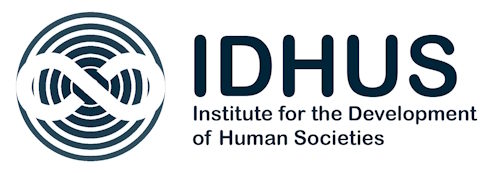Rethinking the City in the Age of Intelligence
We are living in a defining moment in urban history. Cities have become the main stage for humanity’s greatest challenges — from climate change and mobility to inequality, governance, and sustainability. In this context, Artificial Intelligence (AI) is emerging not just as a technological tool, but as a new paradigm for understanding, managing, and transforming the city.
The International Program in Artificial Intelligence and Urban Transformation, created by the IDHUS Institute, offers a comprehensive, advanced, and interdisciplinary approach to the use of AI for sustainable development, social inclusion, and environmental regeneration. Designed for future urban leaders, the program prepares professionals to imagine, design, and govern cities that are not only smart but also conscious, ethical, and human-centered.
A Strategic Training for the Urban Leaders of the Future
Structured into 13 modules, the program combines theory, practice, ethics, and real-world application. Participants will explore how AI is reshaping urban design, planning, sustainability, mobility, public services, and democratic governance.
Each module integrates technical insights, ethical reflection, and international case studies, offering a global perspective on the technological and social forces transforming cities in the 21st century.
The program culminates in a Capstone Project, where participants apply the knowledge gained to design an AI-based proposal or policy addressing a real urban challenge.
Program Content
Module 1 Introduction to Smart Cities and Artificial Intelligence
Defining the Smart City: Concepts, Models, and Global Frameworks
The Role of Digital Transformation in Urban Governance
Fundamentals of Artificial Intelligence: Concepts, Techniques, and Applications
Intersection of AI and Urban Systems
Case Studies: Successful AI-Driven Smart City Strategies
Module 2 Data Foundations for Urban Intelligence
Urban Data Ecosystems: Sources, Types, and Standards
Data Governance, Interoperability, and Ethics
Open Data and Citizen-Generated Data in Smart Cities
Big Data Analytics for Urban Environments
Building AI-Ready Urban Data Infrastructures
Module 3 AI and Urban Governance
Predictive Analytics for Decision-Making in City Management
Cognitive Governance: The Future of Policy Design
AI-Assisted Public Administration: Chatbots and Virtual Assistants
Transparency, Accountability, and Algorithmic Ethics
Integrating AI into Municipal Workflows
Module 4 Mobility and Transportation Systems
Intelligent Traffic Management and Optimization
AI in Public Transport Operations and Planning
Autonomous Vehicles and Shared Mobility Models
Predictive Maintenance of Transportation Infrastructure
Mobility-as-a-Service (MaaS) and AI Integration
Module 5 Energy and Environmental Sustainability
Smart Grids and AI-Based Energy Optimization
Predictive Energy Demand and Load Management
AI for Renewable Energy Integration
Environmental Monitoring: Air Quality, Water, and Waste
AI for Net-Zero and Climate-Resilient Cities
Module 6 Urban Infrastructure and Asset Management
Digital Twins and AI for Infrastructure Planning
Predictive Maintenance for Urban Assets
Sensor Networks and Edge AI in Infrastructure Systems
AI-Driven Urban Design and Simulation Tools
Integrating IoT, AI, and BIM (Building Information Modeling)
Module 7 Urban Safety and Emergency Management
AI-Based Surveillance and Crime Prediction
Emergency Response Systems and Real-Time Analytics
Disaster Risk Reduction through Predictive Modeling
AI for Fire, Flood, and Seismic Early Warning
Ethical and Privacy Considerations in Urban Security
Module 8 Public Services and Citizen Experience
AI for Smart Healthcare Systems
Education, Culture, and AI in Urban Inclusion
Intelligent Public Administration and e-Government
Citizen Interaction: Voice Interfaces, Chatbots, and Civic Apps
AI for Social Innovation and Participatory Governance
Module 9 Urban Economy and Innovation Ecosystems
AI and the Digital Economy in Cities
Supporting Startups and Innovation Clusters through AI
Data Marketplaces and Urban Economic Intelligence
AI in Tourism, Commerce, and Local Industry
Fostering Human-Centered Innovation in Urban Systems
Module 10 Ethics, Regulation, and AI Governance Frameworks
Responsible AI in Urban Contexts
EU and Global Regulations on AI in Public Services
Human Rights, Privacy, and Algorithmic Transparency
Designing Ethical AI Policies for Smart Cities
Governance Models and Oversight Mechanisms
Module 11 Future Urban Scenarios and Emerging Technologies
Generative AI and Cognitive Cities
Quantum Computing and Urban Decision Systems
Edge and Federated AI for Localized Intelligence
The Metaverse, Digital Twins, and Urban Simulation
Envisioning the Future: From Smart to Sentient Cities
Module 12 Practical Applications and Case Studies
Comparative Analysis of Global AI Smart City Initiatives
Lessons from Barcelona, Singapore, Dubai, and Helsinki
Local Implementation Strategies and Best Practices
Integrating AI Across Urban Departments
Designing a Roadmap for AI-Driven Urban Transformation
Module 13 Capstone Project and Evaluation
Final project
Who Should Enroll
This program is designed for urban professionals and decision-makers, including policymakers, planners, architects, sustainability consultants, researchers, and entrepreneurs who wish to integrate AI into their work in urban development and public governance.
It also serves international organizations, development agencies, academic institutions, and technology companies seeking to apply ethical, sustainable, and data-driven strategies in their digital transformation and city innovation projects.
Learning Outcomes
Upon completion of the program, participants will be able to:
Understand the foundations and applications of AI in urban planning and governance.
Evaluate the ethical, social, and environmental implications of intelligent technologies.
Design AI strategies, frameworks, and policies that promote transparency, inclusion, and sustainability.
Implement local projects using data and AI responsibly to improve urban systems and quality of life.
Communicate and lead urban innovation processes with strategic vision and ethical integrity.
Program Details
Duration: 13 modules + final Capstone Project (equivalent to 200 training hours).
Format: Online, with guided mentoring and personalized feedback.
Language: English
Certification: IDHUS Diploma in Artificial Intelligence and Urban Transformation.
Turning Intelligence into Purpose
The International Program in Artificial Intelligence and Urban Transformation is an invitation to imagine and build the future of cities through ethics, knowledge, and collaboration. Because a truly intelligent city is not measured by its number of sensors or algorithms, but by its ability to learn, adapt, and care — for its citizens, its communities, and the planet itself.
Join the next generation of ethical urban innovators.



